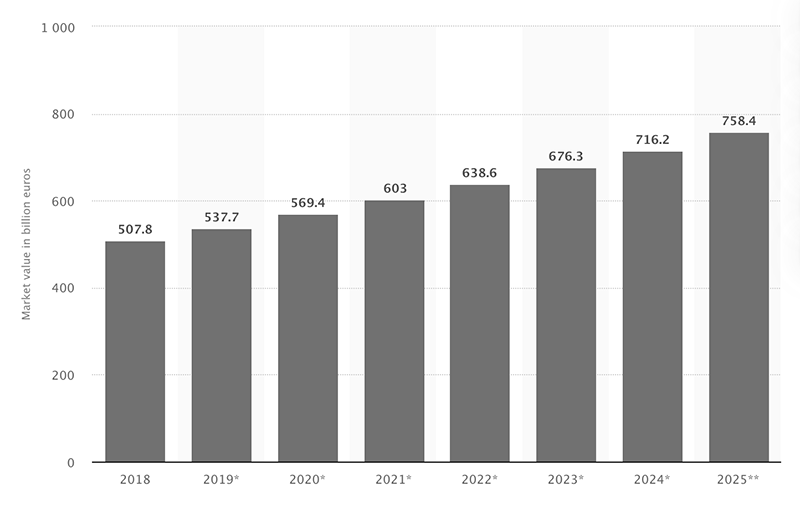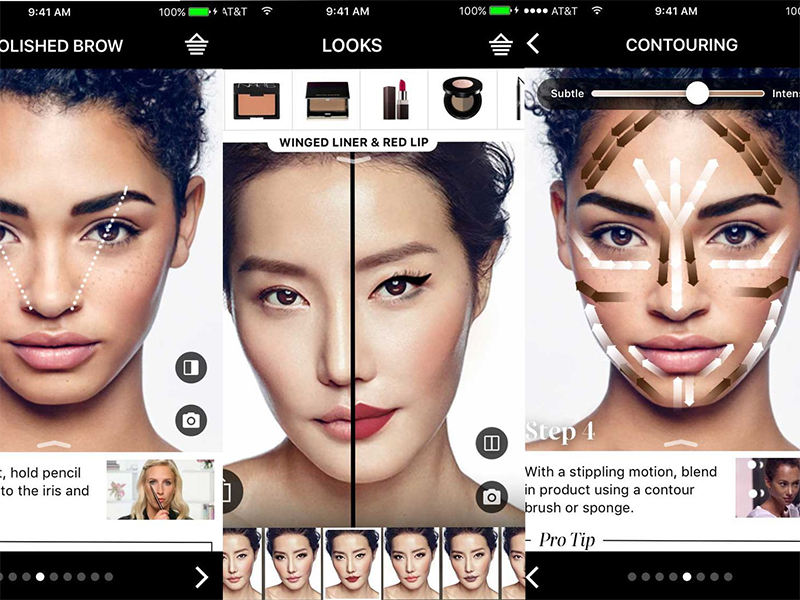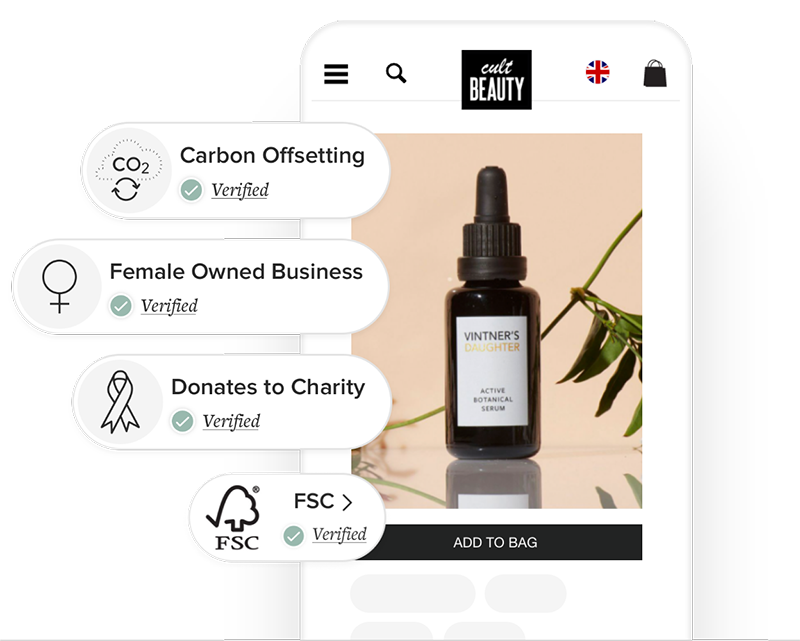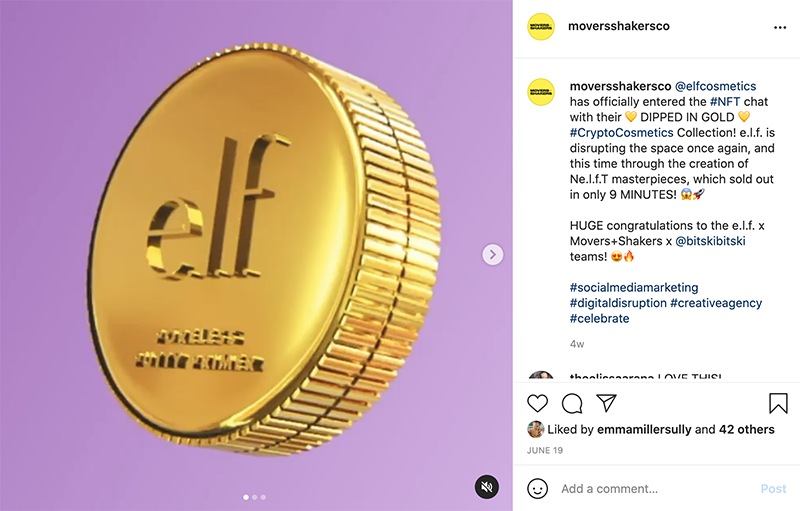Logistics
Warehousing & Fulfillment
Transportation
E-commerce
E-commerce Fulfillment Services
Lease & Maintenance
Semi Trucks
Supply Chain Technology
Logistics
E-commerce
Lease & Maintenance
Buy Used Trucks

News flash: Blockchain is getting a makeover. And it's the cosmetics industry that's leading the way.
Most of us don't associate cryptocurrency and blockchain technology with the world of lip gloss and highlighters. But in a saturated market, beauty brands are fast embracing the latest innovations to gain a competitive edge - including decentralized information storage.
The era of blockchain beauty is here. So, what does this mean for the customer experience?
Blockchain beauty is the blending of the beauty industry with applications of blockchain technology. This fast-evolving integration is opening innovative ways for beauty brands to interact with customers.
Blockchain is the digital ledger system that forms the basis of cryptocurrencies like bitcoin and Ethereum. But it has far more capabilities than just exchanging value.
As a method for sharing and storing encrypted information in real-time, blockchain offers beauty brands a unique way to record everything from product information to customer shopping behaviors - and even to create entirely new classes of products.
Consumers at large are still getting to grips with cryptocurrency. But there's a growing number of blockchain platforms that have identified the beauty industry as a lucrative source of revenue.
This move has taken some industry commentators by surprise. The beauty and personal care industries are heavily skewed towards a female audience, while the world of cryptocurrency is heavily male-dominated. According to investment platform eToro, women make up just 15% of bitcoin traders.
So, what has made the beauty ecosystem a pioneer for the use of blockchain?

The beauty industry is set for explosive growth. The global cosmetics market is projected to reach $758.4 billion by 2025, driven by a surge in skincare, natural, and coral reef-safe products. Male beauty is also on the rise after being ignored for decades, with liberalizing attitudes pushing the men's personal care market to $166 billion by 2022.
The cosmetics industry has historically been a disruptor in the world of ecommerce. Whether it's cutting-edge loyalty programs or curated subscriptions, beauty brands have always had a knack for tapping into exactly what consumers want.

It was Sephora's Virtual Artist app that introduced Augmented Reality to the masses for shopping, rather than entertainment. Kylie Cosmetics' recent embrace of shoppable live streams, a popular medium in Asia, has set a new standard for Western brands. Charlotte Tilbury took a novel approach to pandemic restrictions during the 2020 holiday season by launching an immersive VR shopping experience, complete with avatars and video-calling so customers could shop socially with their friends.
In sum, today's beauty products are a long way from being locked inside the glass cabinets of legacy department stores; they're becoming digital offerings just as much as physical.
Generation Z and the younger millennials are native to the era of digital shopping. They've grown up in a world where the smartphone screen is the gateway to consumption and social interactions - often at the same time.
This has made Gen Z spoiled for choice not just in choosing their Point of Sale, but the brands that grab their attention. They're much more experience and values-driven than past generations. They're less focused on price and more interested in how a product helps them to express their values. This means that their penchant for luxury is already well-developed.
"Gen Z is definitely willing to spend on luxury, which is different than what you hear a lot of times out in the press. The difference is that Gen Z doesn’t think of luxury as a name brand that they want to slap onto their bag or their shirt and wear as a badge. They’re really looking for unique items that set them apart." Emma Spagnuolo, Meet Generation Z: Shaping the future of shopping
Blockchain beauty represents a shift towards a more digitized and interactive form of beauty consumption that enables the qualities that young consumers value the most, brand authenticity and unique experiences.
Blockchain technology might still be in its infancy, but beauty brands have been quick to identify a raft of applications to enhance the customer experience and foster brand trust.
Knowing where a product comes from and how it's made is important in any industry. But the health and beauty space is where consumers have been the most vocal about the need for transparency.
Unlike food products, cosmetics don't need to be independently certified to be labeled as organic. This means that some 'organic' beauty products contain as little as 1% organic ingredients. With the high levels of greenwashing that take place in the personal care industry, it's hardly surprising that we're skeptical about what we read on cosmetics packaging.
But as the demand for cruelty-free and ethically sourced ingredients increases, consumers want more clarity on what their favorite beauty products contain and how they impact local communities. But having full visibility over every link in the supply chain is immensely challenging, even for cosmetics brands who are genuinely invested in creating a green and ethical supply chain. Scandals over the use of child labor in the mining of mica, a substance used to create shimmer in eyeshadows and highlighters, is a prime example of the difficulties that brands face when using outside vendors.

Due to its timestamped and verified data entry, blockchain presents an innovative solution to the problem of supply chain visibility. The UK-based cosmetics vendor Cult Beauty has begun working with blockchain firm Provenance to launch an in-store system called 'proof points'. Brands selling through the site will be able to verify their claims about a product via open-source information from NGOs and lab reports, such as vegan ingredients or sustainability. This allows consumers to make informed purchasing decisions.
Counterfeit cosmetics products are not new. But the issue has grown in size and scope as products from sought-after brands like Kylie Cosmetics and Huda Beauty become major status symbols. Due to high price points and scarcity marketing tactics, it's never been more tempting for consumers to buy fake products to cash in on a trend.
As covered in the recent Netflix series Broken, counterfeit cosmetics products contain a variety of harmful materials including lead, glue, and even arsenic. As sellers become savvier with imitation packaging and selling through third-party sites like Amazon, it's becoming more difficult for consumers to spot fake (and potentially dangerous) cosmetics.
In the same manner as supply chain traceability, blockchain can play a key role in helping consumers and brands verify the authenticity of products.
The pharmaceutical company Seqens has developed a blockchain platform designed to authenticate both products and their raw ingredients via a digital ledger. Consumers will only need to enter the batch number onto the secure website to receive a full breakdown of the manufacturing and sourcing process, which helps build higher levels of brand trust and combat counterfeiting.
The beauty industry has been something of a pioneer when it comes to successful loyalty rewards programs. Sephora's tiered Beauty Insider program now boasts over 25 million members worldwide, a major indication that it offers consumers genuine value.
But Sephora isn't putting its eggs in the one basket. The beauty giant, along with its rival Ulta Beauty and major brands including Glossier and E.l.f., is also signed up to the cryptocurrency rewards program Lolli. The platform, which boasts over 1,000 online merchants, allows consumers to earn portions of bitcoin as a reward for purchases.
Crypto rewards differ wildly from in-house loyalty programs. Rather than being tied to one retailer, consumers are free to spend - or save - their tokens however they choose. This empowerment of the consumer is an extremely attractive value proposition that beauty brands are using to build stronger emotional connections with customers, especially when cryptocurrency investing remains such a male-dominated area.
“We saw it as a way to distribute bitcoin to more people, way easier by not making them have to be an investor to get into bitcoin. They could just be a shopper, which is something that everybody [is]." Says Alex Adelman, founder of Lolli.
Other blockchain firms have taken a different approach by incentivizing customers to become brand advocates. COSMEE is a social media platform that uses its ledger CosmoChain to reward consumers for creating beauty-related content, leaving reviews, or liking/sharing content. This helps to solve the imbalance that often develops on mainstream platforms, where only a minority of influencers earn revenue. from their content.
NFTs, or non-fungible tokens, have rapidly become one of the most talked-about developments in blockchain-based technology. With everything from cat memes to graphics of Paris Hilton selling for millions on the open market, beauty brands are turning to NFTS to connect with their customers in new and exciting ways.
An NFT is a digital asset that has been recorded onto a blockchain ledger, meaning it can be verified as the original of that specific file. It could be an artwork, a song, or even a funny GIF. The value of NFTs comes from their scarcity; people who buy NFTs are purchasing the prestige of ownership, driving demand for rare and unique collectibles. You can find out more about NFTs in our dedicated explainer post.
The Berlin-based studio Look Labs caused a stir in April this year when it launched a high-tech-themed perfume called Cyber. It was accompanied by an exclusive NFT artwork containing a digital representation of the scent using NIRS data.

But it's not only the luxury market that stands to benefit from NFTs. E.l.f. recently offered its customers the opportunity to buy from its #CryptoCosmetics collection, digital reproductions of their most popular products - dipped entirely in gold.
Beauty brands are skilled at positioning themselves as trusted friends rather than vendors. This makes NFTs a sought-after commodity by dedicated fans who want access to unique, exclusive brand offerings.
A trend across beauty product categories is the growing demand for personalization. Consumers don't just want a brand to know their likes and dislikes, but to customize products for their needs.
Today's beauty buyers are much more educated and knowledgeable about different products. Access to beauty influencers, blogs, and tutorials have made consumers aware of what product characteristics will benefit them - and they want brands to deliver.
Offerings such as Living Proof's adjustable hairspray and Bite Beauty's Lip Lab, where consumers can customize the share and finish of their lipstick, have found considerable success. But blockchain technology allows beauty brands to take product customization to the next level.
COSBALL, designed by a leading South Korean skincare manufacturer, is the world's first fully customizable skincare range. Their goal is to build a beauty and wellness ecosystem where big data can be gathered and analyzed to refine formula recommendations.

Consumers upload a detailed skin analysis via their smartphone camera to a blockchain system. This creates a peer-to-peer system of open data where recommendations become more tailored over time, rewarding customers with COSBALL tokens that can be redeemed on new products.
Given the secure nature of blockchain, this means consumers can share information that improves their brand experience, without needing to worry about hacks or misplaced data.
Direct-to-consumer beauty has long been setting enviable benchmarks for ecommerce brands to emulate. Whether it's the cult-like social media following of Glossier or ColorPop Cosmetics' high-profile Disney partnership, beauty companies always seem to be on the cusp of ecommerce innovation. So, what does this mean for the future of blockchain?
Blockchain technology is still far from being a mainstream offering. The lack of education over its capabilities means that the take-up amongst consumers remains small. But product authenticity and supply chain traceability efforts provide an opportunity for consumers to engage with blockchain in more ways than as a currency. As pressure increases on beauty brands to show greater transparency, we can expect to see more interest in blockchain solutions.
Blockchain is helping to usher in an era where customer-centered retailing reaches new heights. Consumers can make better-informed purchasing decisions, be empowered by more flexible loyalty initiatives, and have access to unique and personalized product offerings. The beauty brands that get on board with these developments now will be the best positioned to build lasting loyalty in the future.